Welcome to the newly introduced Institute for Glycomics blog
GlycoBuzz is the Institute for Glycomics' educational blog, where our researchers and support staff cover interesting topics from their areas of research, or activity related to our industry, using language that's easy for the general public to understand.
A vast range of topics, both broad and well-defined, are covered by our bloggers, providing useful information and answers to those questions you've probably always wanted to ask but never had the opportunity.
We hope you enjoy the content!
Latest GlycoBuzz releases

Why is antibacterial resistance a concern?
Most (if not all) people would have been prescribed with antibiotics by their health practitioner at some point in their lives to stave off an infection. But have you ever delved deeper into the subject of bacterial infections, antibiotics, antibacterials and antibacterial resistance? Our researchers Professor Kate Seib, Dr Taha and Valentin Slesarenko, have quite an important message to share in this latest blog article.
Author: Professor Kate Seib, Dr Taha and Valentin Slesarenko

Some of the world's worst pandemics
Pandemic. This is a word that’s become all too familiar in the last few years, thanks to the onset of the COVID-19 pandemic which has sent the world into a state of turmoil.
But in fact, pandemics have threatened mankind for time immemorial. In our latest GlycoBuzz blog article, Gael Martin, one of our PhD students at the Institute for Glycomics, discusses past and present pandemics, including some of the worst pandemics the world has ever seen.
Author: Gael Martin

The subject nobody likes to talk about: Gonorrhoea
You may be wondering why we’d make gonorrhoea our latest subject of choice for the GlycoBuzz blog. Well, it just so happens that this disease infects an estimated 87 million people worldwide each year! Our expert in this area of research, Professor Kate Seib, shows us just how important her research is in the fight against gonorrhoea.
Author: Professor Kate Seib
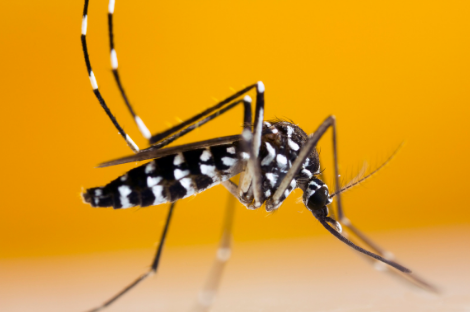
Mosquitoes; The deadliest animal on earth!
Did you know that mosquitoes kill more humans each year than any other animal? It is hard to believe that something so small can cause such global devastation, and yet it’s true. Mosquitoes transmit a range of pathogens which cause deadly diseases, resulting in massive global morbidity (the condition one suffers when affected with a disease) and mortality (death). In this regard, a mosquito is classified as a ‘vector’.
Author: Associate Professor Lara Herrero

HIV Explained
HIV remains to be a major global public health issue. According to the World Health Organization, HIV has claimed the lives of roughly 35 million people so far, and in 2020 it was estimated that 38 million people are currently living with the disease. In this blog article, Professor Johnson Mak delves into the details of this very clever, yet deadly, virus and why prevention is so extremely important.
Author: Professor Johnson Mak

Coronaviruses - A Family of Viruses
Coronavirus, COVID, COVID-19, ‘Corona’. These are all terms we wish we’d never have to hear mentioned again. And yet, they don’t seem to be going away anytime soon! So why not learn what we can about the subject, to better arm ourselves with facts and useful information rather than conspiracy theories.
Author: Professor Johnson Mak

Epidemiology
What is epidemiology? What are the aims of an epidemiologist? What is an outbreak? What is an epidemic? What does endemic mean? What is a pandemic? We answer all these questions and more.
Author: Dr Benjamin Bailly
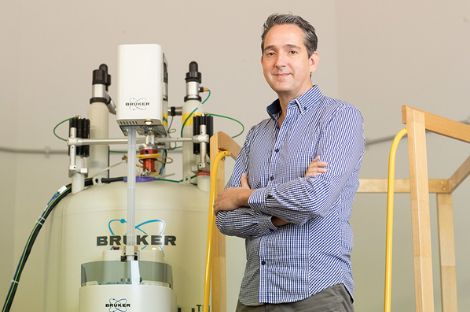
Using NMR Spectroscopy to fight diseases
In this blog, Institute research leader Associate Professor Thomas Haselhorst explores the subject of Nuclear Magnetic Resonance (NMR) Spectroscopy; what it is, how it works, and why it’s important in our fight against cancer and infectious diseases.
Authors: Associate Professor Thomas Haselhorst
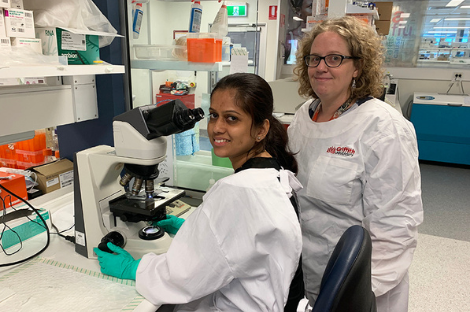
Vaccines
With the introduction of the newly developed COVID-19 vaccines around the world, and their impending roll-out in Australia in early 2021, we felt it timely to deep-dive into the very interesting, and much debated, topic of vaccines.
Authors: Dr Danielle Stanisic and Dr Reshma Nevagi
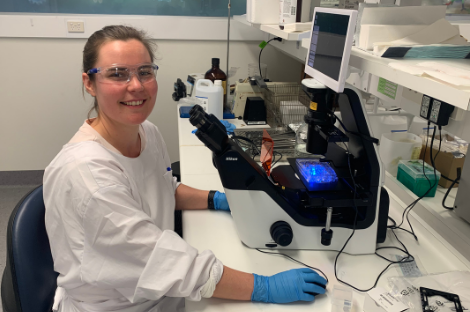
Human Metapneumovirus (hMPV)
Human Metapneumovirus (prononouced meta-new-mo-virus), or hMPV in short, is the topic of focus in this blog. But what exactly is hMPV, who is more at risk of severe illness, and how is the Institute’s research combatting this particular pathogen?
Author: Annelies Van Den Bergh
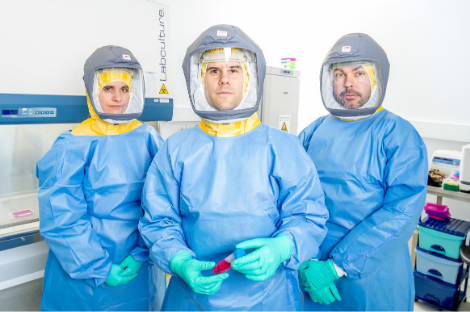
Physical Containment Facilities
What are Physical Containment Facilities and why do we need them? What is the difference between a PC2 and PC3 Facility? What is PPE? What are high risk pathogen groups? We answer all these questions and more.
Author: Dr Carie-Anne Logue